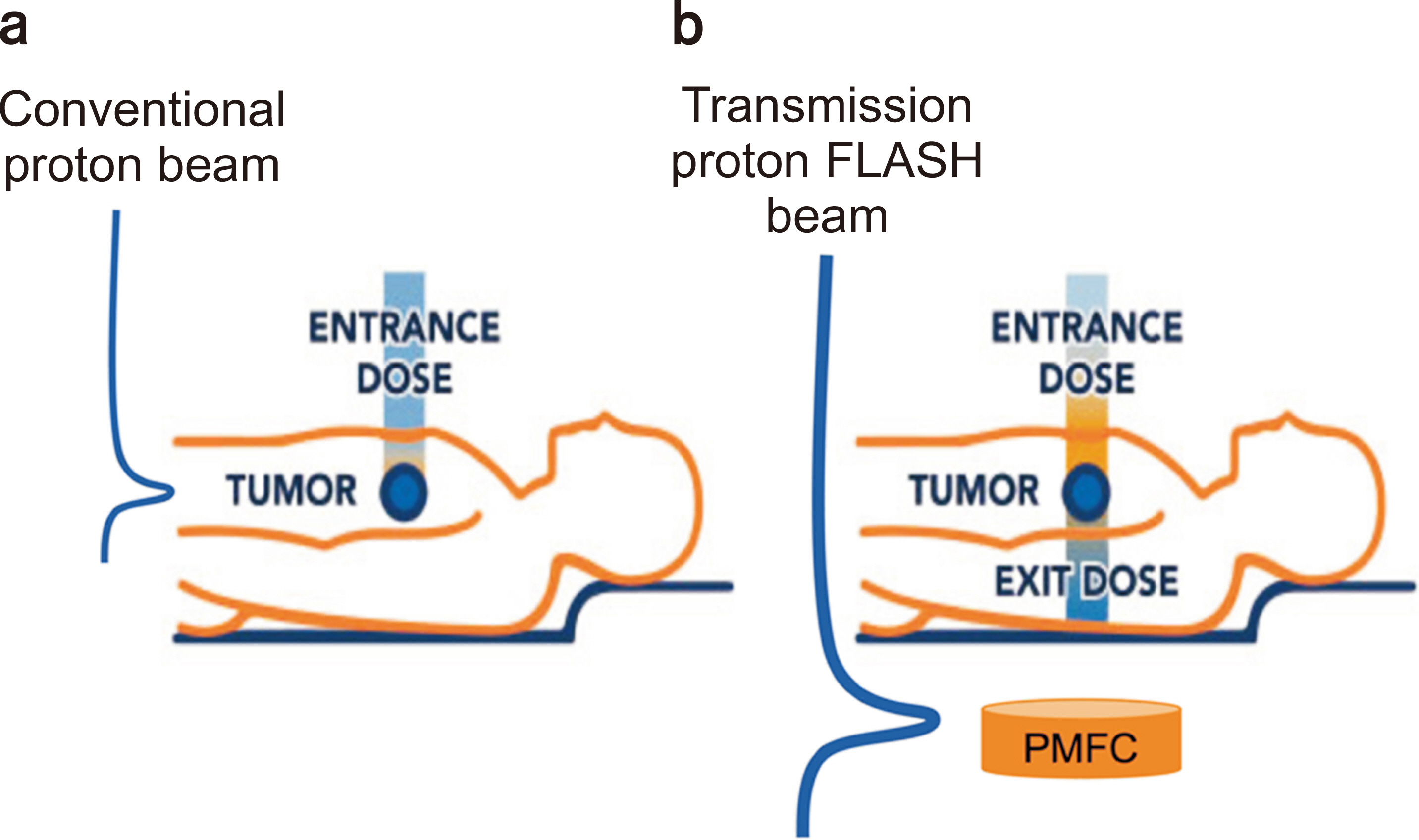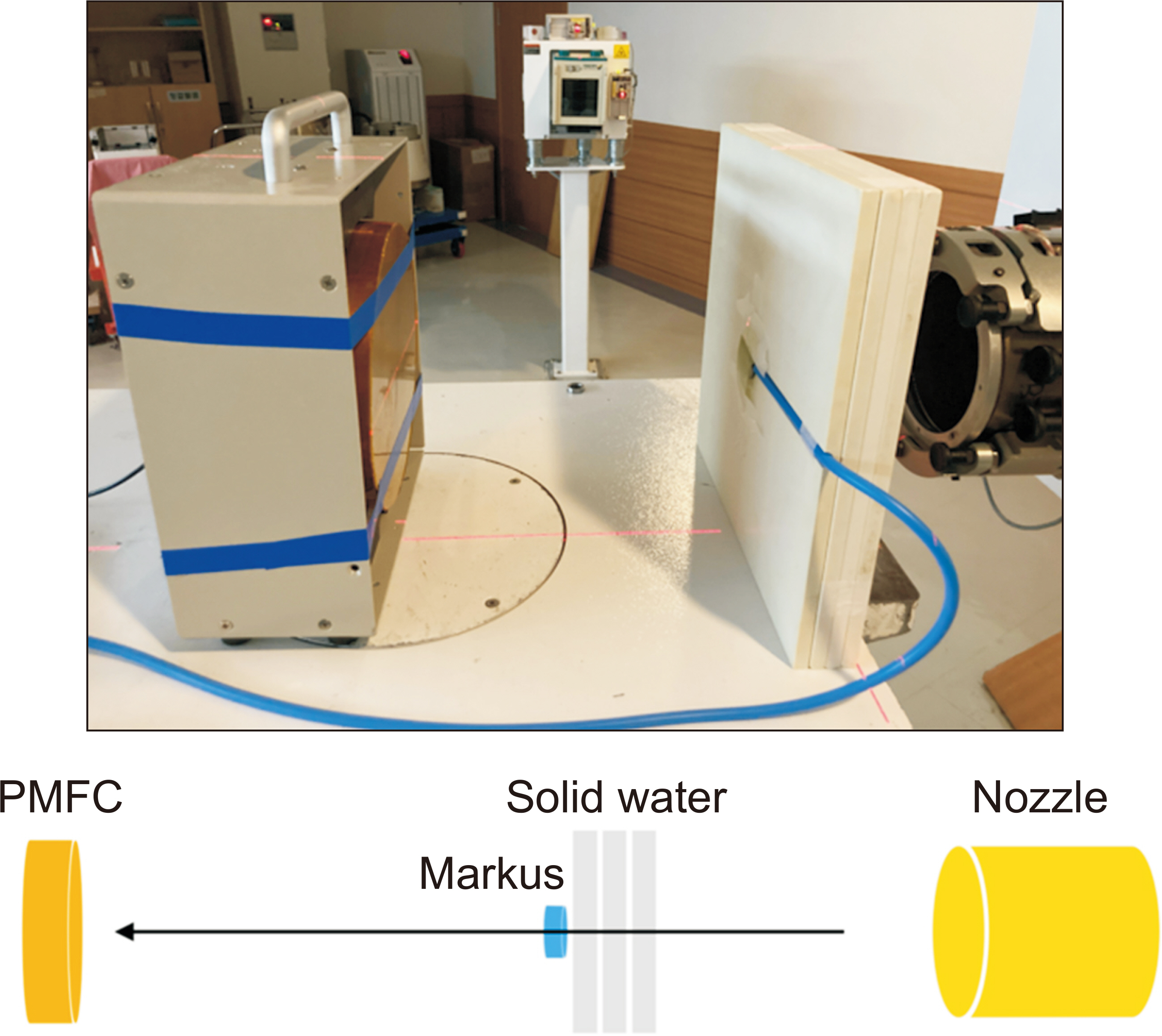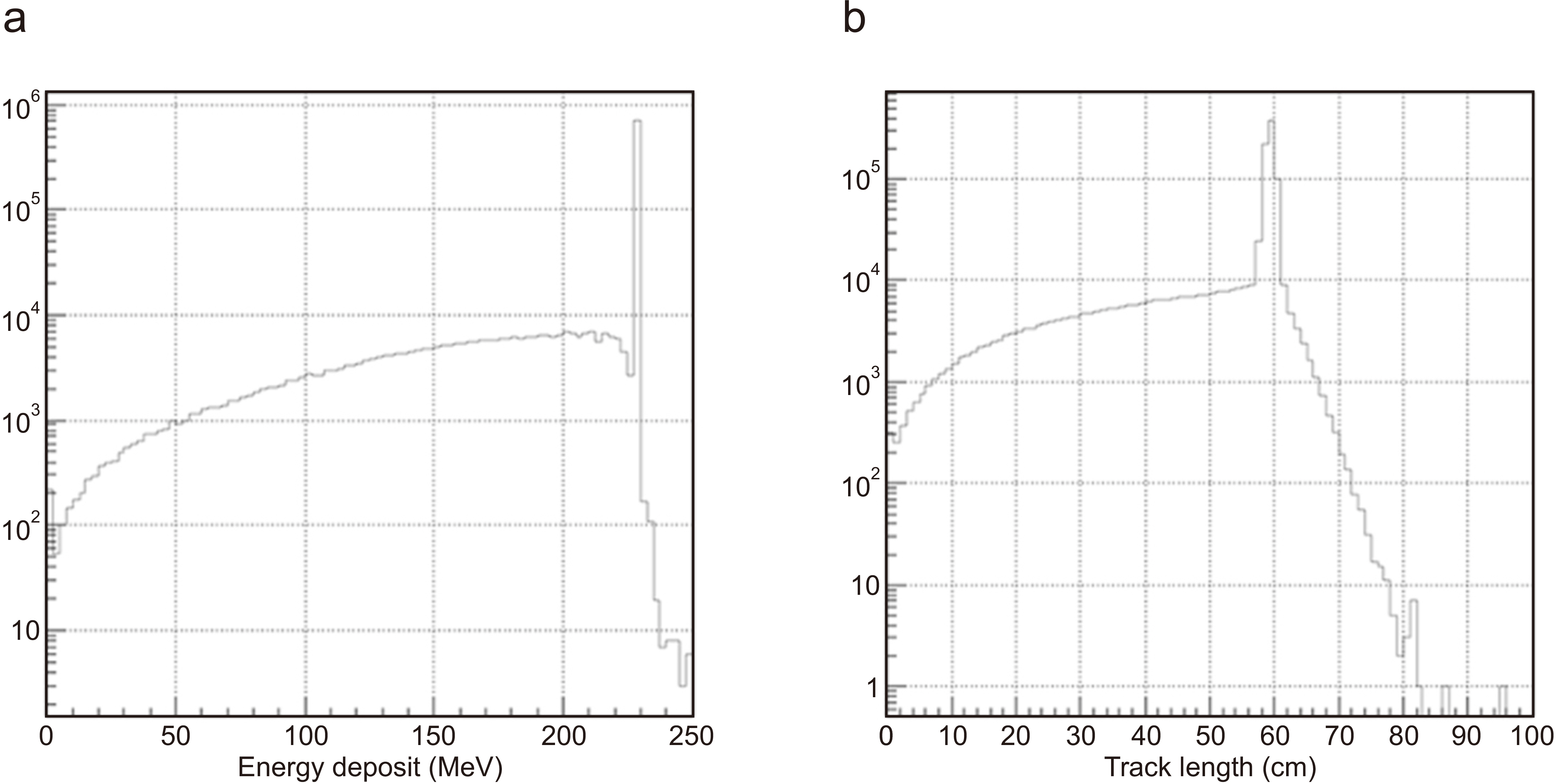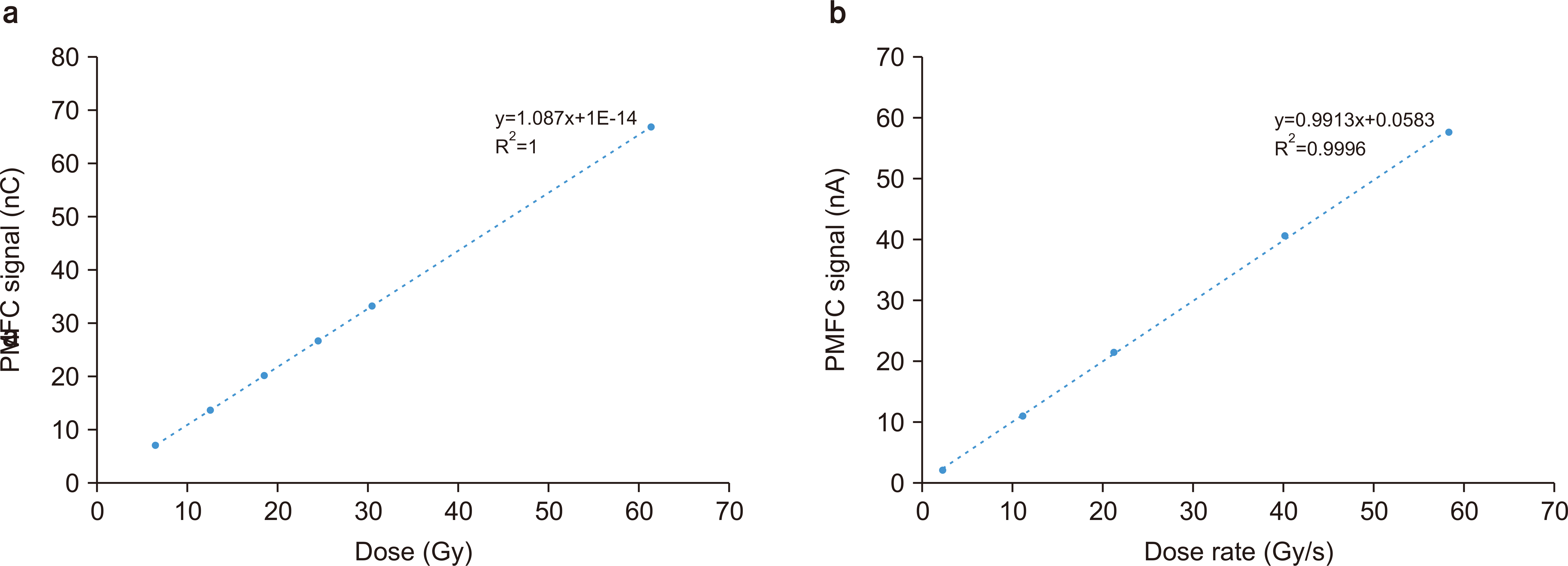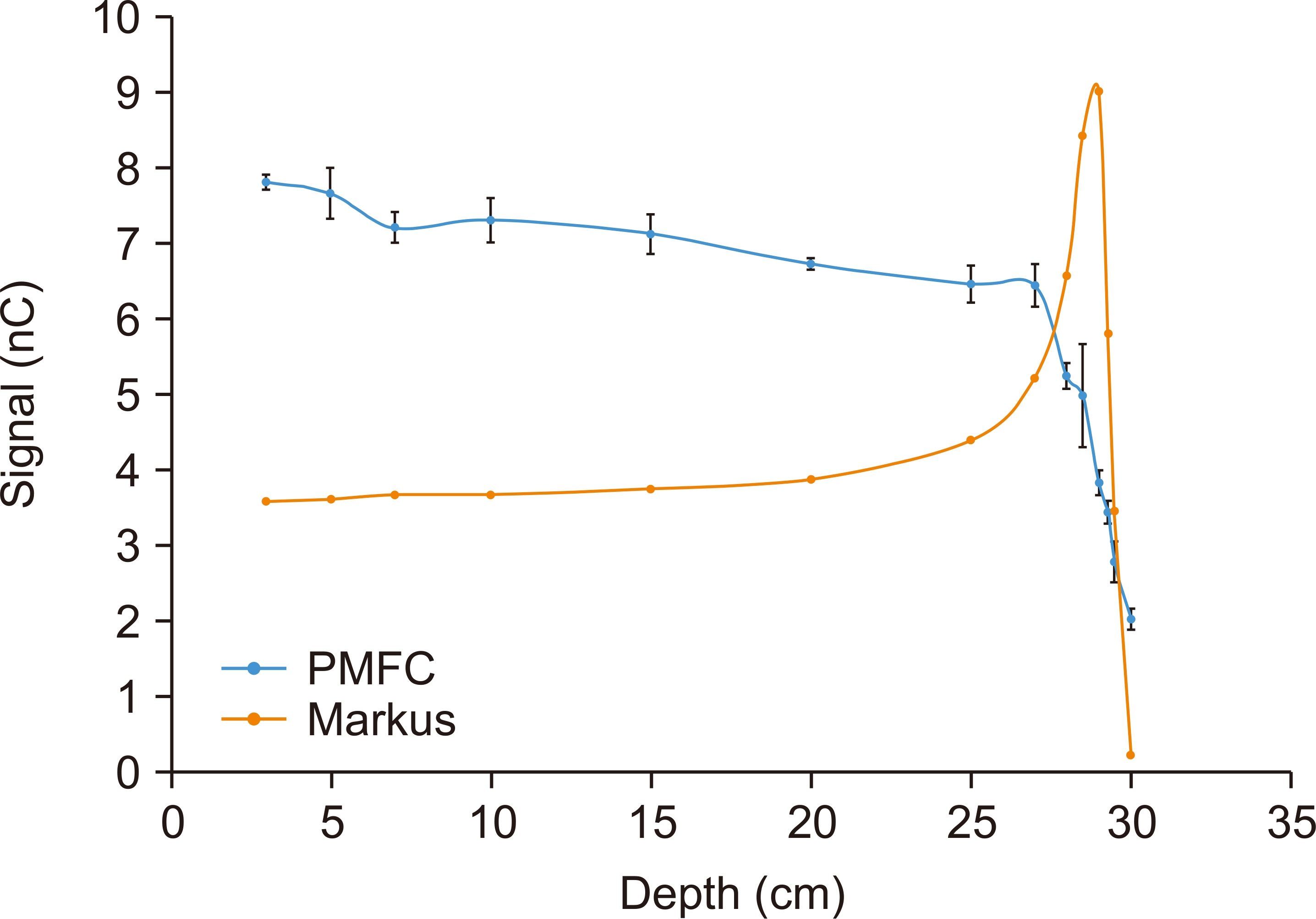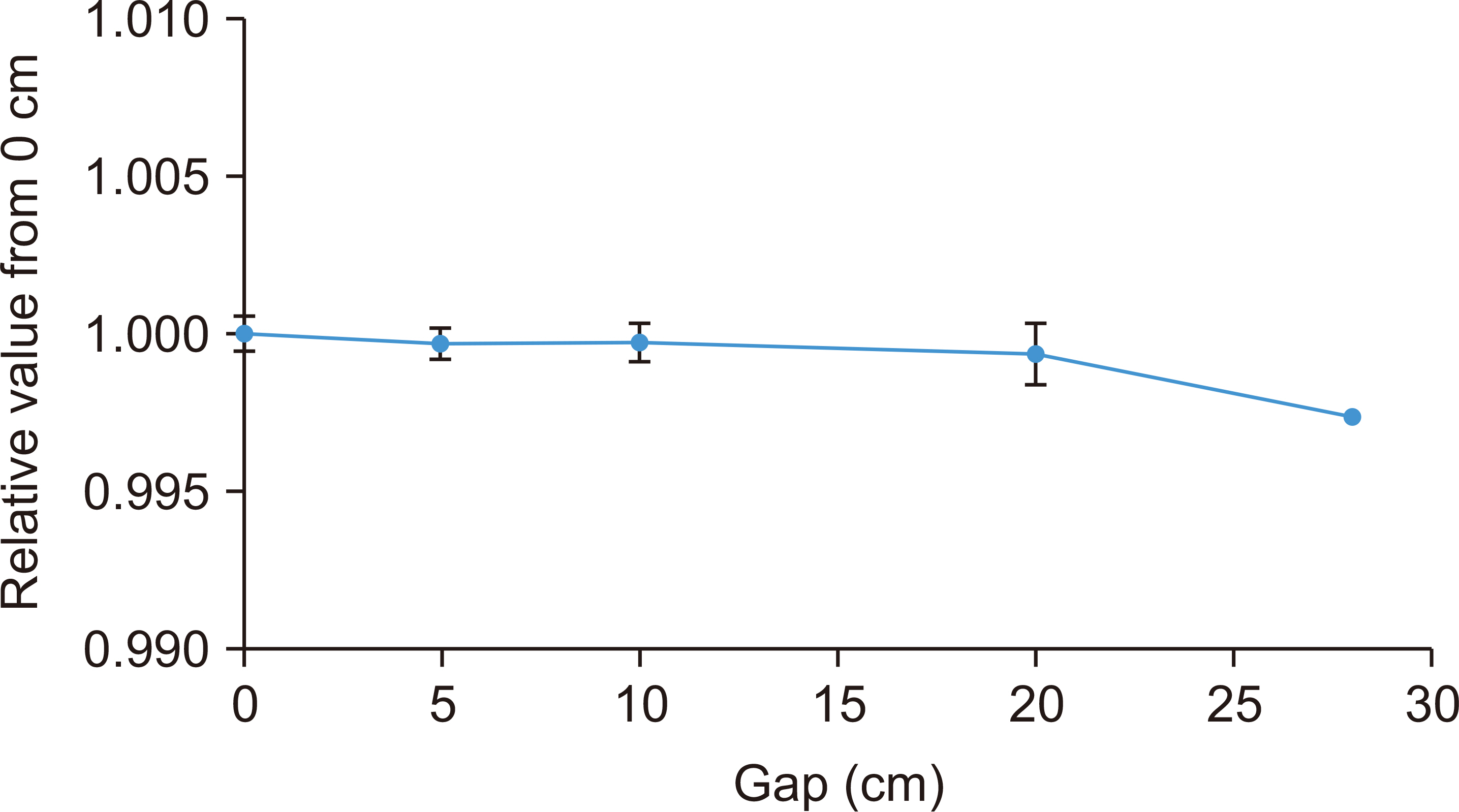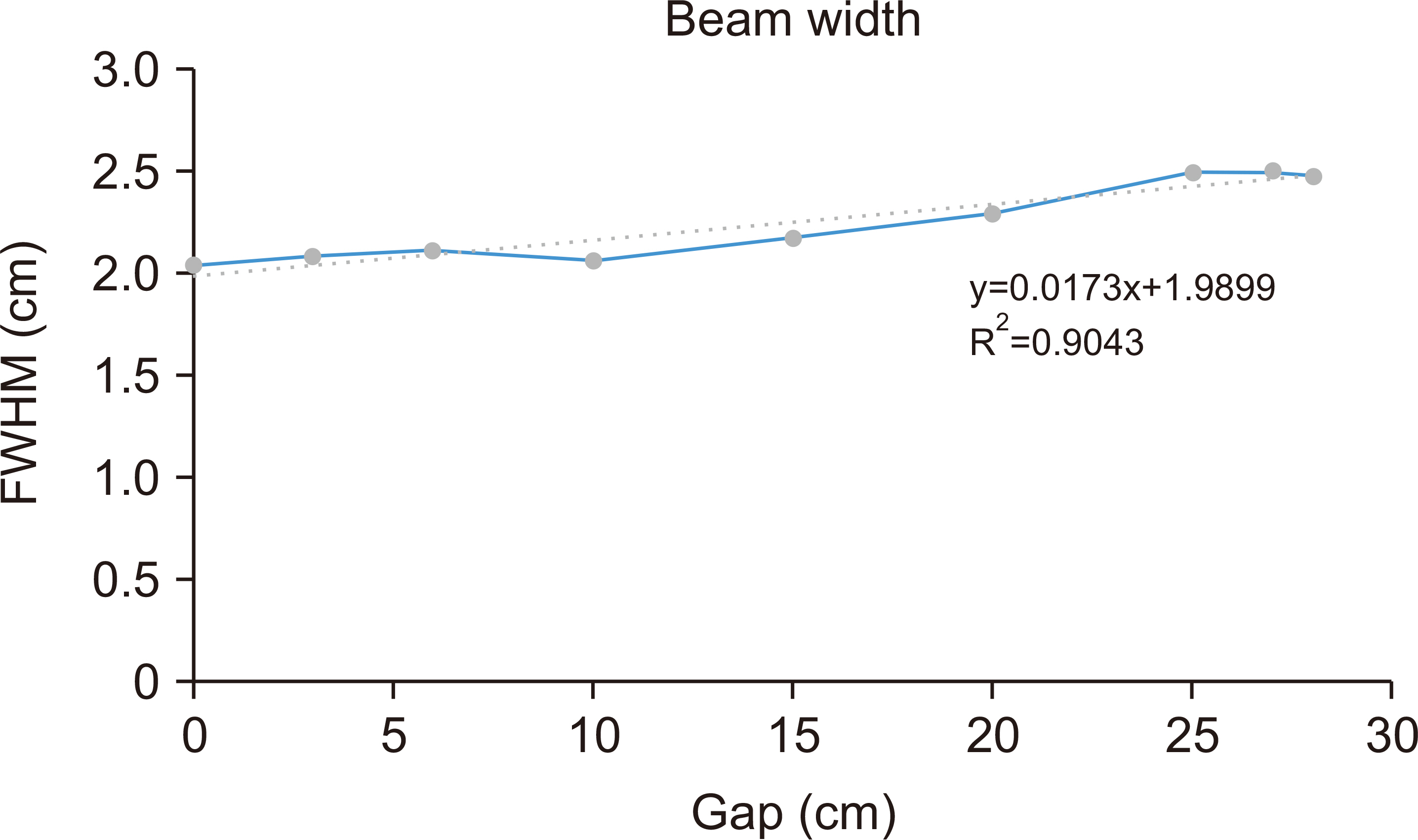Prog Med Phys.
2022 Dec;33(4):108-113. 10.14316/pmp.2022.33.4.108.
Feasibility Test of Flat-Type Faraday Cup for UltrahighDose-Rate Transmission Proton Beam Therapy
- Affiliations
-
- 1Proton Therapy Center, National Cancer Center, Goyang, Korea
- 2Department of Radiation Oncology, Samsung Medical Center, Seoul, Korea
- 3Department of Physics, Hanyang University, Seoul, Korea
- KMID: 2537878
- DOI: http://doi.org/10.14316/pmp.2022.33.4.108
Abstract
- Purpose
Proton therapy has been used for optimal cancer treatment by adapting its Bragg-peak characteristics. Recently, a tissue-sparing effect was introduced in ultrahigh-dose-rate (FLASH) radiation; the high-energy transmission proton beam is considered in proton FLASH therapy. In measuring high-energy/ultrahigh-dose-rate proton beam, Faraday Cup is considered as a doserate-independent measurement device, which has been widely studied. In this paper, the feasibility of the simply designed Faraday Cup (Poor Man’s Faraday Cup, PMFC) for transmission proton FLASH therapy is investigated.
Methods
In general, Faraday cups were used in the measurement of charged particles. The simply designed Faraday Cup and Advanced Markus ion chamber were used for high-energy proton beam measurement in this study.
Results
The PMFC shows an acceptable performance, including accuracy in general dosimetric tests. The PMFC has a linear response to the dose and dose rate. The proton fluence was decreased with the increase of depth until the depth was near the proton beam range. Regarding secondary particles backscatter from PMFC, the effect was negligible.
Conclusions
In this study, we performed an experiment to investigate the feasibility of PMFC for measuring high-energy proton beams. The PMFC can be used as a beam stopper and secondary monitoring system for transmission proton beam FLASH therapy.
Keyword
Figure
Reference
-
References
1. Particle Therapy Co-Operative Group. Facilities in operation [Internet]. Particle Therapy Co-Operative Group,;[place unknown]: Available from: https://www.ptcog.ch/. cited 2022 Jul 20.2. Lee SB. 2020; Proton therapy review: proton therapy from a medical. Prog Med Phys. 31:99–110. DOI: 10.14316/pmp.2020.31.3.99.
Article3. Citrin DE, Mitchell JB. 2017; Mechanisms of normal tissue injury from irradiation. Semin Radiat Oncol. 27:316–324. DOI: 10.1016/j.semradonc.2017.04.001. PMID: 28865514. PMCID: PMC5653270.
Article4. Wei S, Lin H, Choi JI, Press RH, Lazarev S, Kabarriti R, et al. 2022; FLASH radiotherapy using single-energy proton PBS transmission beams for hypofractionation liver cancer: dose and dose rate quantification. Front Oncol. 11:813063. DOI: 10.3389/fonc.2021.813063. PMID: 35096620. PMCID: PMC8794777.
Article5. Ashraf MR, Rahman M, Zhang R, Williams BB, Gladstone DJ, Pogue BW, et al. 2020; Dosimetry for FLASH radiotherapy: a review of tools and the role of radioluminescence and Cherenkov emission. Front Phys. 8:328. DOI: 10.3389/fphy.2020.00328.
Article6. Cascio EW, Gottschalk B. 2009. A simplified vacuumless Faraday cup for the experimental beamline at the Francis H. Burr proton therapy center. Paper presented at: 2009 IEEE Radiation Effects Data Workshop; 2009 Jul 20-24; Quebec, Canada. DOI: 10.1109/REDW.2009.5336294.
Article7. International Atomic Energy Agency (IAEA). 2000. Absorbed dose determination in external beam radiotherapy. IAEA;Vienna: p. 398. DOI: 10.3389/fphy.2020.00328.8. Vadrucci M, Esposito G, Ronsivalle C, Cherubini R, Marracino F, Montereali RM, et al. 2015; Calibration of GafChromic EBT3 for absorbed dose measurements in 5 MeV proton beam and (60)Co γ-rays. Med Phys. 42:4678–4684. DOI: 10.1118/1.4926558. PMID: 26233195.
Article
- Full Text Links
- Actions
-
Cited
- CITED
-
- Close
- Share
- Similar articles
-
- Proton Therapy Review: Proton Therapy from a Medical
- A Pilot Study of the Scanning Beam Quality Assurance Using Machine Log Files in Proton Beam Therapy
- Proton Beam Therapy
- A Monte Carlo Simulation Study of a Therapeutic Proton Beam Delivery System Using the Geant4 Code
- Proton therapy: the current status of the clinical evidences

